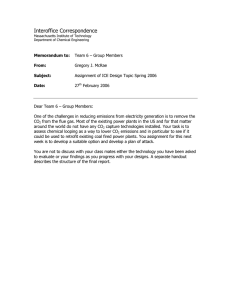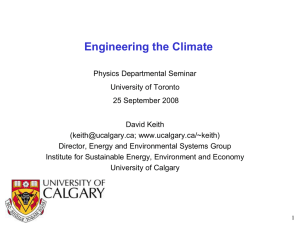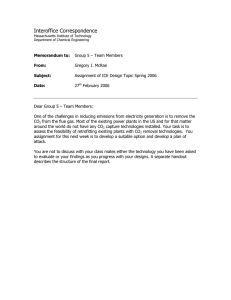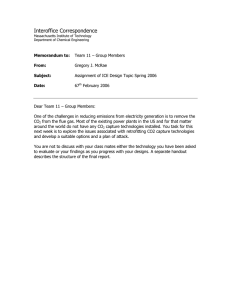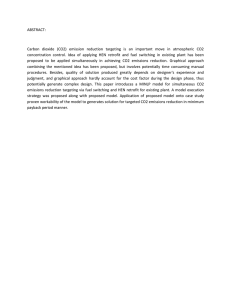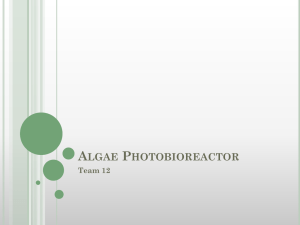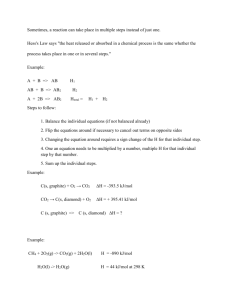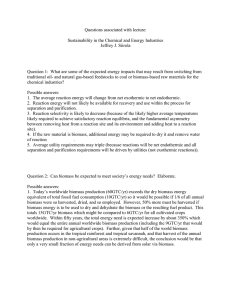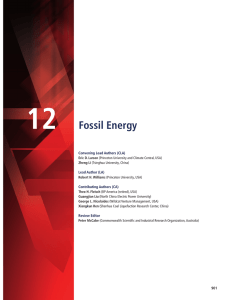Iron Fertilization, Air Capture, and Geoengineering
advertisement
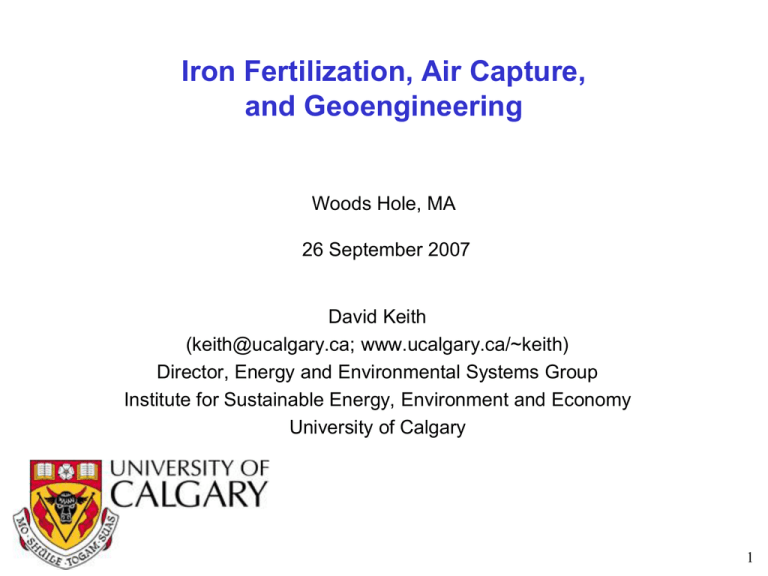
Iron Fertilization, Air Capture, and Geoengineering Woods Hole, MA 26 September 2007 David Keith (keith@ucalgary.ca; www.ucalgary.ca/~keith) Director, Energy and Environmental Systems Group Institute for Sustainable Energy, Environment and Economy University of Calgary 1 New York Times May 24th 1953 2 Emissions are rising faster than expected Skeptics argued that this “unrealistic” scenario was included only to make the problem look worse This is where we need to be heading 3 And, it’s melting quicker than models predict Ice cover on 16 September 2007 minimum ice cover 4 1979-2000 Human actions that change climate Climate System Climate impact on human welfare Human actions that change climate Mitigation Climate System Climate impact on human welfare Geoengineering Adaptation Climate impact on natural world (Polar Bears) Human actions that change climate Mitigation Climate System Climate impact on human welfare Geoengineering Adaptation Carbon Management: Location vs Mechanism 8 Biomass Energy with Capture 9 Biomass with Capture 10 Electricity for free… 8 Biomass with CO2 capture … at a ~300 $/tC carbon price Coal Cost of electricity (c/kWh) Natural gas 6 Biomass 4 Cost of air capture with current electricity prices 2 0 50 100 150 200 Carbon price ($/tC) 250 300 11 Air Capture 12 Thermodynamics of CO2 capture Free energy of mixing: kT ln p p0 To get 1 bar it takes: ~ 6 kJ/mol starting at 10% CO2 in a power plant exhaust, and ~ 20 kJ/mol starting at the 380 ppm ambient atmospheric concentration It takes ~13 kJ/mol to compress from 1 to 100 bar C + 2 O2 CO2 394 kJ/mol Power plants are ~35% efficient (~160 kJe/mol-C from coal) min loss of electric output should be ~12% ((6+13)/160). Current designs are at least twice as bad. 13 Direct Air Capture 14 A A 15 16 17 18 Cost and energy use vs flow rate 19 Negative emissions change long-run climate policy 700 Reference 650 ppmv CO2 600 Lucky 550 500 450 Unlucky Air cap 400 350 300 2000 Air cap 2050 2100 2150 2200 2250 Year Keith, D. W., Ha-Duong, M. & Stolaroff, J. K. Climate strategy with CO2 capture from the air. Climatic Change (2005). 20 Air Capture Summary 1. Three uses • Long run negative emissions (2100?). • Acting in a rush, AC along while we do Coal CCS (2030?) • Low Carbon Fuels and remote EOR (2015?) 2. NaOH contactor • ETH/Rome group using commercial data on packed towers. • Calgary/CMU using spray tower • Less than $50/tCO2 3. NaOH regen • Nuclear heat • Electrochemical • Borates/Titenates • No good end-to-end costing. 21 Other Methods 22 Increasing ocean alkalinity Motivation: 2×[CO3-2] + [HCO3-] [A] • Mg-silicates – Olivine (Mg2SiO4) and serpentine (Mg3Si2O5(OH)4) are the most abundant Mg-silicates • MgO • CaCO3 • CaO 23 Comparisons 24 25 26 27 28
